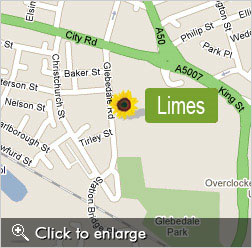In order to understand the behaviour of a person living with dementia, we need to understand their fears and the way in which they assert their own identity.
Once the emotional, identity and social frameworks within which people with dementia live are understood, then effective, life-enhancing forms of help can be developed.
We understand that there is no one size fits all solution to supporting people with dementia and that it should never prevent anyone from leading a full and active life.
Expert team specifically trained in dementia care
Everyone in the care team recognises, supports and celebrates each person's individuality. They receive training through our bespoke dementia care programmes and have regular refresher courses thereafter.Regular meetings and social gatherings are organised for families and friends and form an essential support network.
Meaningful activities
In order to create activity programmes that mean something to the individual, we gather detailed information about the person's life -background, family and social networks, past interests and hobbies. We use Life History forms to gain this information for each of our residents.This form is completed by the relative or by staff together with the resident and/or relative and is kept in the care plan. The information obtained enables staff to design individualised care programmes and to offer personally meaningful activities.
It is impossible to be prescriptive about suitable activities for all residents. For residents with dementia it can be difficult to distinguish precisely the stage of the illness they are at and the activity preferences are very individual. However there are some useful general principles.
In the early stages people can still follow the rules and work towards a goal, for example, sports and board games such as draughts, scrabble, bowls or dance, group discussions, quizzes, structured craftwork, and so on.
As thought processes and language are further impaired, it is difficult to follow such rules, however, familiar routines are retained, as is the ability to use familiar objects. Therefore we would offer music, dance, movement, reminiscence, painting and expressive arts.
As the individual's world shrinks further, activities need to stimulate the senses, encourage movement, be rhythmic and repetitive and most of all, simple. Examples would include movement, music, dance, simple games using balls, balloons, folding, dusting, polishing, rummaging, for example, using items with life history relevance, massage and multi-sensory stimulation including the use of dolls, soft toys and animals.
We try to offer a range of activities that residents at varying degrees of dementia are able to participate in.
Mouth watering meals
Providing good nutritional care for people with dementia can only be achieved through a multidisciplinary approach. All staff, from managers to cooks, play an important role in the catering process, at the heart of which is the needs of people living with dementia. For example, the attention our cooks need to give to the presentation and quality of food is equal to that required when considering the environment in which it is served or the approach of care staff assisting people to eat.We try to encourage maximum independence at mealtimes through the use of adaptive cutlery, clear crockery, finger foods and soft diets.
Building design
We have designed our building to create a therapeutic dementia care environment. This should enable residents to recognise their surroundings, take part in everyday activities and take control of their own environments.Some of the design features we have implemented to help achieve the above objectives are:
- We aim to make each bedroom door unique to the individual be it with a special colour or memory box to aid orientation.
- Specifically designed lighting levels.
- Visual cues to aid orientation.
- Patterned carpets and upholstery fabrics to reduce confusion.














